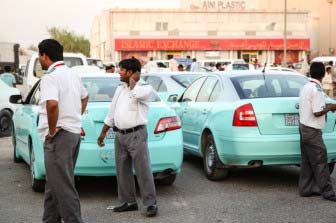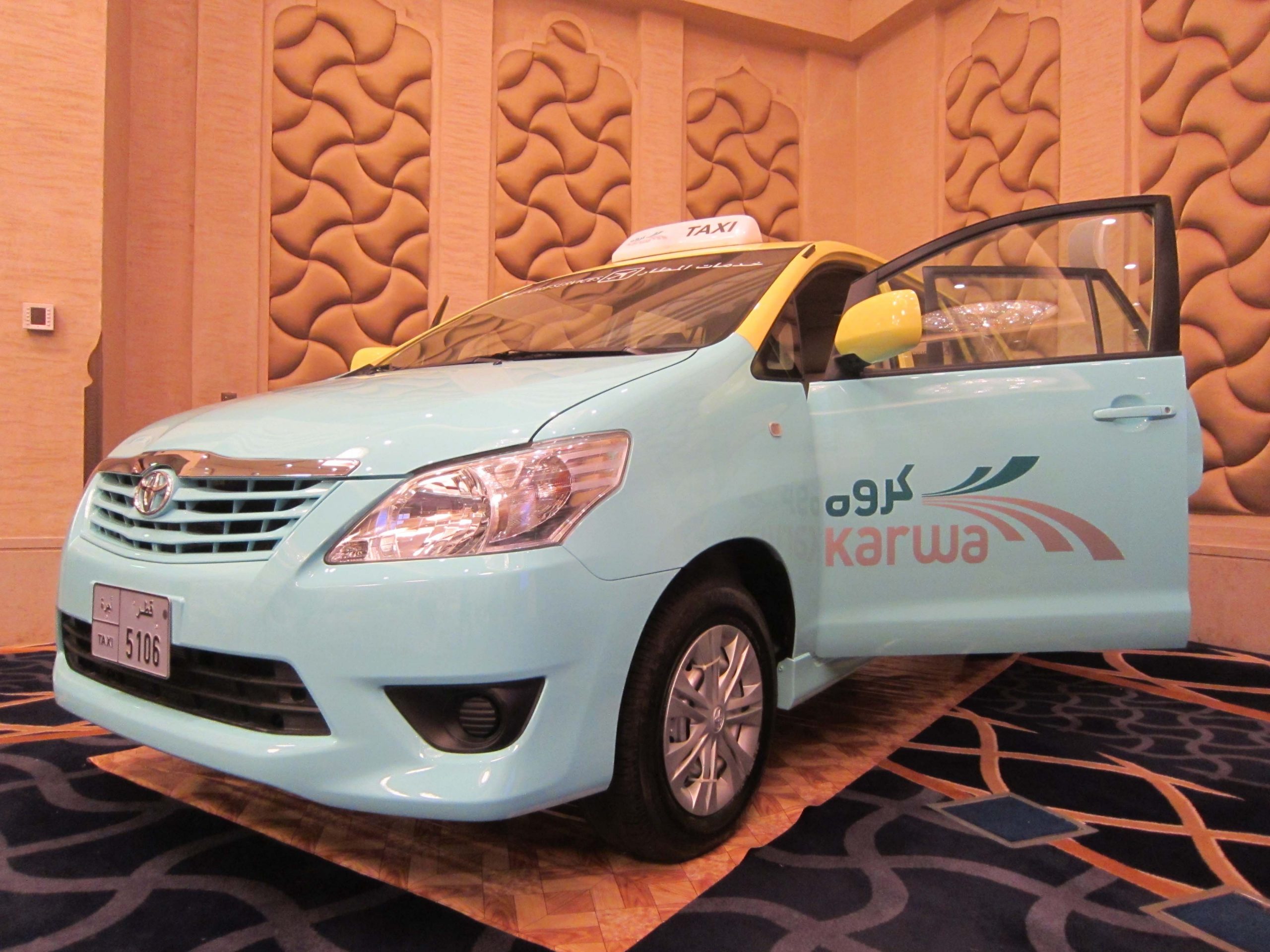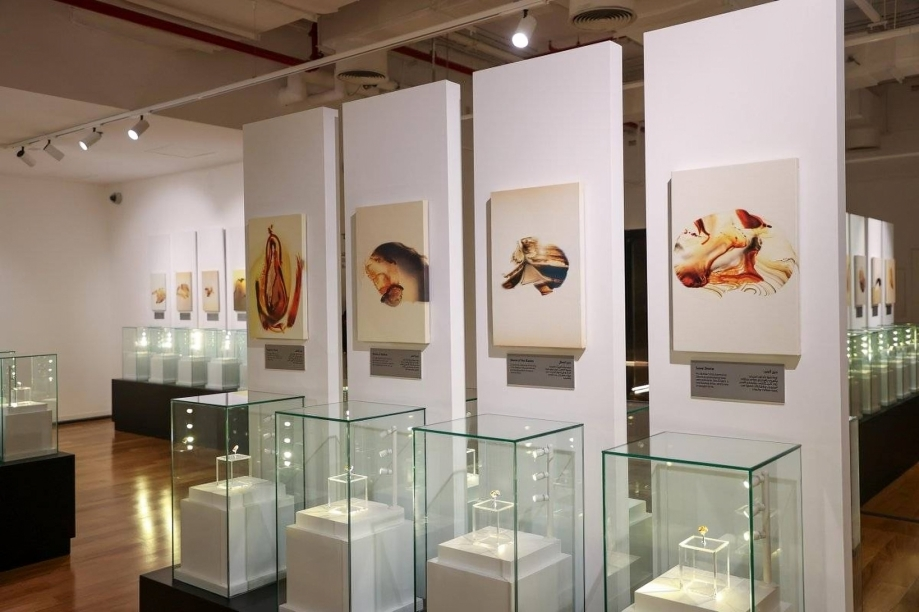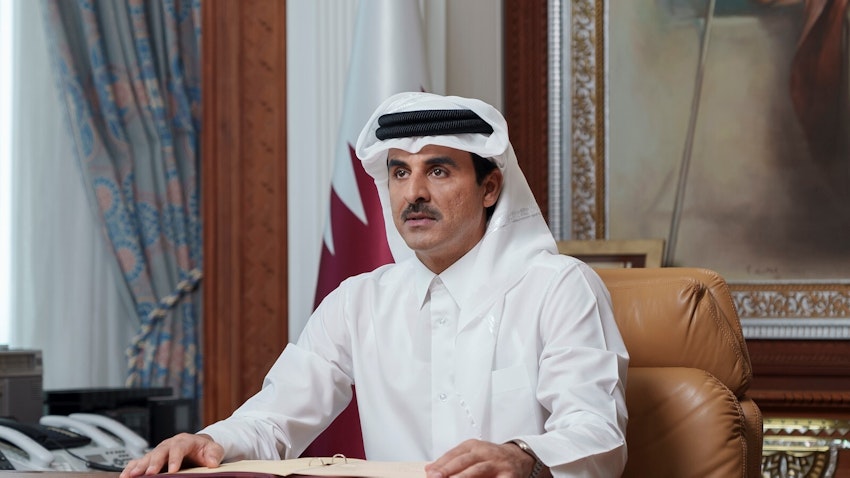
As Qatar’s newest taxi company pushes to expand its Doha fleet, managers there have said they hope to address the seemingly endless cycle of customer complaints about cab drivers by treating their employees better.
Residents here frequently lament rude taxi drivers who overcharge or refuse certain customers. In response, many drivers counter that they are underpaid and are forced to cheat passengers to eke out a living.
This stems in part from the compensation structure for many of Qatar’s taxi drivers, who must pay their employer a daily car rental rate in excess of QR200. With Doha’s worsening traffic jams, some drivers have said it is difficult to do much more than recoup that sum on a typical 11-hour shift.
Speaking on the sidelines of a press event this week, P Balasubramaniam, group director of Profit Group, which operates the Cars Taxi franchise, told Doha News:
“The company is as good as the drivers it has. (We tell drivers), ‘You are ambassadors for Qatar. So you have to promote the country and ensure the cars are clean, you are well-dressed, know all the destinations and if they ask you about other destinations, talk to them.’”
Cars Taxi made its debut in Doha last September with drivers paid on a salary system and currently has approximately 340 vehicles in its fleet, Balasubramaniam said.
He expects that number to grow to 500 taxis – the maximum permitted under the company’s current license – by the end of June. However, Balasubramaniam added that his firm would like to have a much larger local presence:
“The minute we (reach 500), we will (contact) Mowasalat to see if they will grant us permission to add more. We have the capacity to easily go up to 1,000 cars immediately. The facilities are all available.”

There are four other taxi brands in Qatar: maroon-roofed Al Million, dark gray-roofed Capital Taxis, blue-roofed Al Ijarah, as well as some 1,200 light gray-roofed cars run by state-backed Mowasalat, which has said it wants to get out of the business of operating taxis and focus solely on its role regulating the industry by 2017.
Before then, the operator hopes to add two more franchise companies and, presumably, expand business possibilities for existing taxi firms.
“I’m sure (Mowasalat) will look at which companies are operating well and give us more opportunities in the state of Qatar,” Balasubramaniam said.
Airport dispute
Balasubramaniam spoke to Doha News Monday at a press conference to announce that Cars Taxi would operate 20 new seven-seater Toyota Innova taxis at the airport.

He said the vehicles would be part of the general airport taxi queue, but could be dispatched to pick up a large group of travelers upon request.
The addition of the Cars Taxi vehicles would reportedly bring the total number of airport cabs to 320.
Hamad International Airport was the scene of a labor dispute earlier this year involving drivers from other taxi companies who said they already received a salary.
In January, several airport drivers staged a limited two-day strike after being promised a raise that never materialized.
One driver who spoke to Doha News earlier this year said his pay amounts to roughly QR1,200 after deductions for accommodations, water and electricity, but that his take-home pay is typically much less due to unexplained penalties for alleged traffic violations or vehicle damage.

He said airport drivers could theoretically earn more if they bring in a great deal of revenue under a commission system, but added that this rarely happens.
Balasubramaniam said Cars Taxi drivers also pays its drivers slightly more than QR1,000 a month, but said the bonus system is achievable. He said five drivers were given awards yesterday morning for all recently clearing QR5,500 in take-home earnings in a single month.
When asked about recent labor unrest among taxi drivers, Balasubramaniam said the company takes several steps to boost employee morale. This includes ensuring that drivers have access to medical services and can communicate with family members back home.
Additionally, the drivers’ earnings are reported daily so they know how much they are making in commissions.
“Transparency is very important,” he said.
Balasubramaniam added that the company also engages in one-off efforts, such as arranging for four Nepalese drivers whose families were affected by last month’s earthquake to fly to an Indian airport close to the Nepal border.
Collectively, he said this has resulted in a high employee retention rate. While Balasubramaniam was not able to provide an exact figure, he said he does not know a case of a Cars Taxi driver quitting over a compensation-related dispute.
Thoughts?







